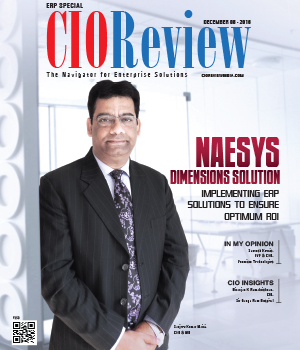ERP Implementation: The Pitfalls to Avoid
By Navjot Singh Sidana, General Manager – ERP, Delhi Integrated Multi-Modal Transit System (DIMTS) Ltd. | Tuesday, 09 June 2020, 10:18 IST

ERP implementations are typically large and complex and a little negligence can land the entire project in jeopardy. There have been several instances of ERP implementations failing the world over and let me tell you that the reasons are manifold. Having been personally involved in many ERP implementations, it becomes my obligation to apprise the readers of the common pitfalls through this article. Based on my personal experience, I have listed the top 7 reasons here using the word PITFALL as an acronym.
1) P –Poorly conceived goals
Goals are of paramount importance in any IT project. However, they become even more relevant in the context of ERP implementation projects since the cost of failure is inordinately high. There have been several instances where organizations set the ball rolling with respect to ERP projects even before thoroughly analyzing what is going to be achieved out of it. I would like to sternly warn them that this can soon become their Achilles heel unless they do a course correction and properly define their goals. A supplementary benefit of doing so would be that the success of project can be measured by comparing the achievements vis-à-vis these goals.
2) I –Impractical expectations of users
At times, the users expect nothing short of a magic from ERP system once it is implemented. Since a significant portion of project success hinges upon the users’ response, it becomes quite important to set their expectations right from the beginning itself. The limitations of the software should also be clearly articulated so that the users are crystal clear in their minds with respect to what to expect and what not to expect from the ERP system.
3) T –Tepid project team selection
The project team is vital to the success of the project. Hence, any half-hearted attempt to assemble the team could prove perilous. Each and every member of the project should be conscientiously selected with due weightage to their educational qualifications and past experience.
4) F –Fear of change
By nature, human beings are generally resistant to change.The case of ERP users is no different. They feel that their work-load would increase once the new system is in place. They also fear that some jobs may become redundant in the new regime. This is where the role of change management comes into place. Managed change can reduce anxiety and thus minimize resistance to change.
5) A – Absence of open communication
Communication, the flow of information between people, is essential for the success of any project. It assumes larger dimensions in the context of ERP implementations because of the complexity involved. Open lines of communication between the implementation team and the client team will lead to greater transparency and hence reduce chances of any untoward surprises later in the project. Teams that communicate openly are also more likely to execute the project on-schedule.
6) L – Lack of senior management commitment
Senior management plays a very crucial role in the success of ERP projects. They can set the project on-track as and when required by allocating the right type and quantity of resources. Since the ERP project requires involvement of multiple departments and all of them may not get equivalent benefits from the same; senior management support becomes vital in case some of the departments do not co-operate with the implementation.
7) L – Lack of appropriate training
Training of ERP users is the foundation stone on which the entire success of the ERP system rests. Inadequacy of training will not only de-motivate the users but also risk the project success significantly. Pertinent training will lead to internal capacity building for the organization and will also reduce dependence on the ERP vendor.
The key objective of my article is to make the organizations implementing ERP aware of these hindrances so that they mitigate the risks and prevent their projects from going off-track. There may be other reasons for ERP failure beyond those listed above. However, if the above 7 are taken care of, the chances of project failure will reduce drastically. As the adage goes, “The proof of the pudding is in the eating”, please go ahead and follow the advisory above.
CIO Viewpoint
ERP Systems Evolving to Improve Business Agility
By Abhrasnata Das
Transforming Manufacturing by Creating a...
By Thiagarajan N, Director IT at IMI Critical Engineering
How Reliance Entertainment leverages SMAC and...
By Sayed Peerzade, Group CIO, Reliance Big Entertainment & Reliance Entertainment - Digital
CXO Insights
Hit Reset with Technology as the Trusted Advisor
By Guruprasad Gaonkar, APAC SaaS Leader - Office of Finance (ERP) & Digital Supply Chain, Oracle
ERP Implementation: The Pitfalls to Avoid
By By Navjot Singh Sidana, General Manager – ERP, Delhi Integrated Multi-Modal Transit System (DIMTS) Ltd.
Power And Water Nexus Central To Data Center...




.jpg)





